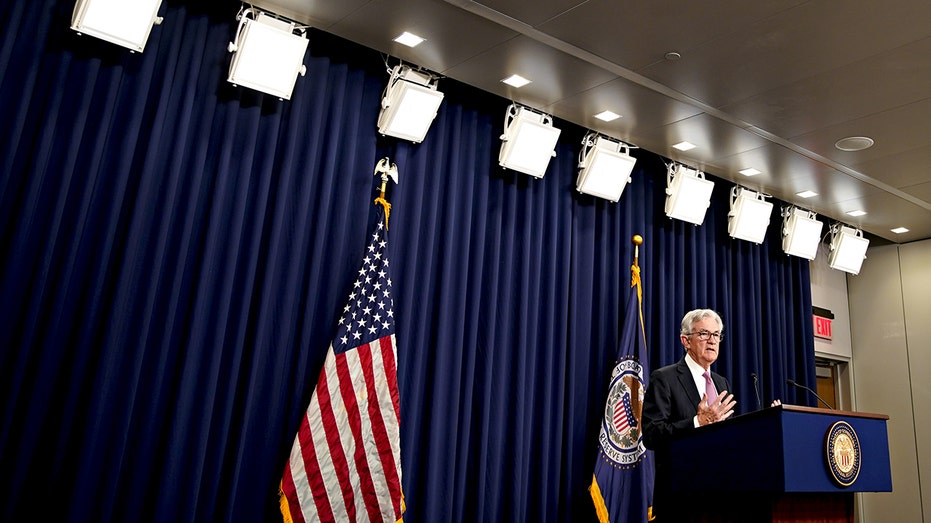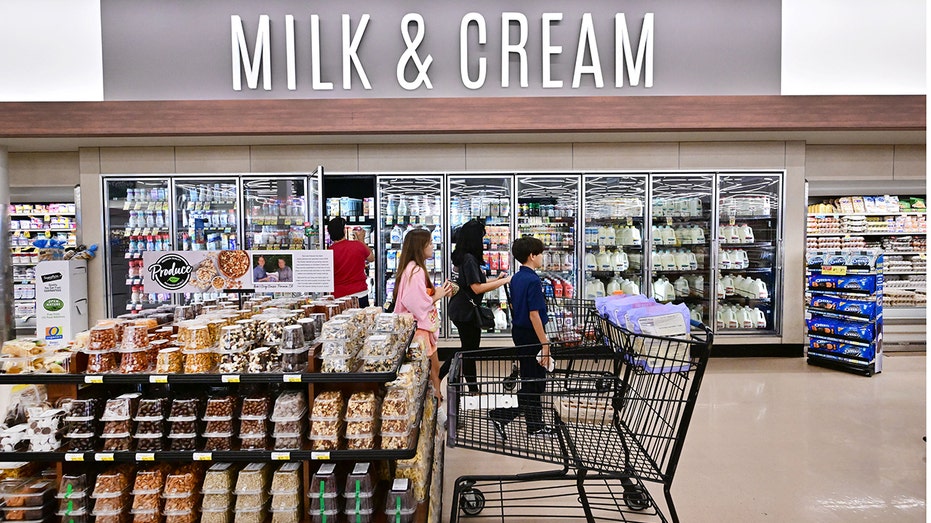Inflation rose faster than expected in August, keeping prices painfully high
Consumer price index unexpectedly climbed 8.3% in August, despite a decline in gas prices
The Fed needs 3 months of softening inflation data: Jason Katz
UBS managing director and senior portfolio manager Jason Katz provides insight on the market's response to the Fed on 'Making Money.'
Inflation rose more than expected in August, squeezing U.S. households even as the cost of gasoline fell and continuing to create a political headache for President Biden.
The Labor Department said Tuesday that the consumer price index, a broad measure of the price for everyday goods including gasoline, groceries and rents, rose 8.3% in August from a year ago. Prices climbed 0.1% in the one-month period from July.
Those figures were both higher than the 8.1% headline figure and 0.1% monthly decline forecast by Refinitiv economists, a worrisome sign for the Federal Reserve as it seeks to cool price gains and tame consumer demand with an aggressive interest rate hike campaign. Stock futures tanked on the surprisingly hot report, with the Dow Jones Industrial Average down more than 400 points.
So-called core prices, which strip out the more volatile measurements of food and energy, climbed 6.3% from the previous year, above the 6.1% forecast from economists. Core prices also rose more than expected on a monthly basis, jumping 0.6% in August – a bigger increase than in April, May, June and July, and a troubling sign that underlying inflationary pressures in the economy remain strong.
AMERICANS' INFLATION EXPECTATIONS DROPPED AGAIN IN AUGUST, NEW YORK FED SAYS
Scorching-hot inflation has created severe financial pressures for most U.S. households, which are forced to pay more for everyday necessities like food and rent. The burden is disproportionately borne by low-income Americans, whose already-stretched paychecks are heavily impacted by price fluctuations.
Although households saw some real reprieve last month in the form of lower energy prices, which fell 5% in August from the previous month, other price gains proved persistent and stubbornly high.
The cost of groceries climbed 0.7%, putting the 12-month increase at 13.5%, the highest since May 1979. Consumers paid more for items like cereal, chicken, milk and fresh vegetables.
Shelter costs, which account for about 40% of the core inflation increase, have climbed 6.2%, the fastest since February 1991.
Rent costs jumped 0.8% over the month and 6.7% on an annual basis. Rising rents are a concerning development because higher housing costs most directly and acutely affect household budgets. Another data point that measures how much homeowners would pay in equivalent rent if they had not bought their home, climbed 0.7% in August from the previous month.

Fed Chairman Jerome Powell speaks during a news conference in Washington, D.C., on May 4, 2022. (Al Drago/Bloomberg via Getty Images)
"Today's higher-than-expected CPI reading shows that we still have a long way to go before inflation returns to more normal levels," said Scott Brave, the lead consumer spending economist at Morning Consult. "While the recent decline in gas prices has provided a welcome reprieve for consumers, it represents just one part of the larger consumer basket, and prices for much of that basket continue to increase at rates that far exceed incomes."
Rampant inflation and the rapid dissolution of Americans' buying power have become major political liabilities for Biden ahead of the November midterm elections, in which Democrats are expected to lose their already razor-thin majorities. Surveys show that Americans see inflation as the biggest problem facing the country – and that many households blame Biden for the price spike.
The president has blamed higher prices on greedy corporations, supply chain bottlenecks and other pandemic-induced disruptions in the economy, as well as the Russian war in Ukraine. Most economists now agree that unprecedented levels of government stimulus and a stronger-than-expected recovery from the pandemic have also played at least some role in exacerbating the price spike.
In a statement after the report's release, Biden touted the modest one-month increase in headline CPI as evidence of "more progress in bringing global inflation down in the U.S. economy."
"Overall, prices have been essentially flat in our country these last two months: that is welcome news for American families, with more work still to do," he said. But the president added that it will ultimately take more "time and resolve" to tackle inflation.
BILLIONAIRE DAVID RUBENSTEIN WARNS INFLATION WILL BE 'DIFFICULT' FOR THE FED TO REDUCE
The report will also have significant implications for the Federal Reserve, which is tightening monetary policy at the fastest rate in decades as it tries to cool consumer demand and reduce out-of-control inflation. Policymakers approved back-to-back 75-basis point rate hikes in June and July for the first time since 1994 and have confirmed that a similarly sized increase is on the table at the meeting on Sept. 20-21.
| Ticker | Security | Last | Change | Change % |
|---|---|---|---|---|
| I:DJI | DOW JONES AVERAGES | 50135.87 | +20.20 | +0.04% |
| I:COMP | NASDAQ COMPOSITE INDEX | 23238.66991 | +207.46 | +0.90% |
| SP500 | S&P 500 | 6964.82 | +32.52 | +0.47% |
INFLATION NOW CAUSING FINANCIAL PAIN FOR MOST AMERICANS, SURVEY SHOWS
In a speech last month at the Kansas Fed's annual economic symposium in Jackson Hole, Wyoming, Powell reiterated a pledge to continue raising interest rates and hold them at a higher level until price increases are tamed – even if it causes economic "pain."

Shoppers walk through a supermarket in Montebello, California, on Aug. 23, 2022. (Frederic J. Brown/AFP via Getty Images / Getty Images)
He stressed that policymakers need to see substantial evidence that inflation has slowed before taking their foot off the brakes.
"While the lower inflation readings for July are welcome, a single month’s improvement falls far short of what the Committee will need to see before we are confident that inflation is moving down," Powell said.
CLICK HERE TO READ MORE ON FOX BUSINESS
With the August inflation data coming in hotter than expected, the odds of an even steeper rate hike in September and a more aggressive central bank in the coming months are much higher.
"The August CPI report indicates that inflation is still roaring hot," said Jason Reed, an assistant chair and professor of finance at the University of Notre Dame. "This all but guarantees that the Federal Reserve will increase the federal funds rate by 75 basis points later this month. Economists were hoping for a cool down during August and they saw that with significant declines in the price of gasoline and energy, but food and health care prices remained high."





















